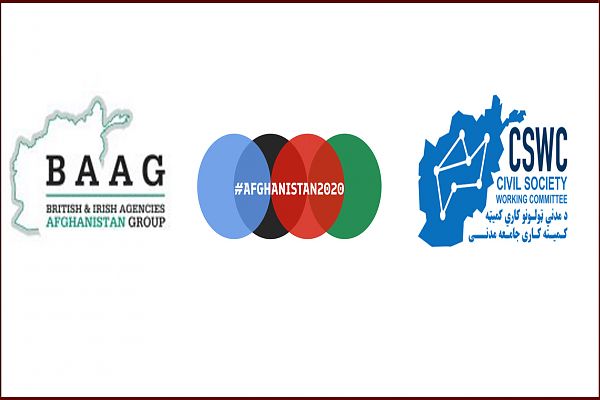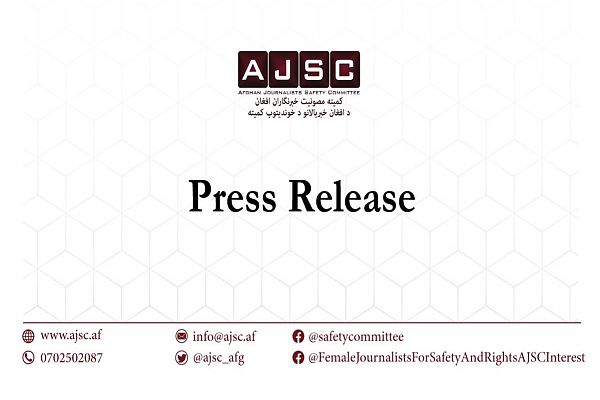Excellencies, Ladies and gentlemen, international friends and fellow Afghans
It is an honour for us to speak to you today from Afghanistan, a country proud to still exist after 40 years of exhausting war. The hope for peace had revitalised Afghans everywhere, both inside and outside the country, but the brutal attacks on mothers and babies in a maternity home, the attacks on educational institutions, journalists and human rights defenders point to there being a long road ahead of us despite the talks in Doha.
However, we still hope, every day that, with your assistance, we shall achieve peace and prosperity. We speak to you today on behalf of Afghans, including the nearly one thousand people who took part in consultations, organised by Civil society working committee members in every province, in preparation for the 2020 Afghanistan conference.
The vast majority of Afghan men and women demand peace. They call, therefore, on all parties to end the war immediately- and to resolve their conflicts through political will, sincerity and negotiation.
We expect transparency and accountability in the process leading to an inclusive peace agreement that benefits all citizens regardless of their ethnicity, their gender, or their beliefs.
We as civil society actors have an important, citizen-led, contribution to make to the peace efforts and would like international support for this.
More than one hundred thousand innocent civilians have been killed or wounded in the last decade. We call on all pursuing violence to reflect upon the new realities of Afghanistan, to consider the fact that violence yields nothing except further destruction and sorrow. Moral values and international laws require there to be protection for citizens and their rights, and the avoidance of the destruction of the infrastructure that should be the foundation of the country’s economic future.
The increase in civilian casualties while there are talks in Doha, has shaken the trust of the Afghan people in the peace process. The ongoing armed conflict is not only killing and maiming people but it is also tearing apart the very fabric of our society. War and associated poverty and hunger have led to many families taking their daughters out of school to marry them off at an early age, thus ending their prospects for a future they could have had.
War has destroyed the means of livelihoods and displaced countless Afghans, producing refugees and IDPs. Jobs and infrastructure are badly needed. The ongoing war has been the main cause of poverty, lack of access to education, to justice, and to basic health services. This has, directly and indirectly, caused the increase of all types of violence within the society, including violence against women, against children, both girls and boys and men. Those injured by war seek justice, compensation and reconciliation.
The democratic achievements belong to the people of Afghanistan. While the presence of the international community has provided support, it was the people of Afghanistan who worked hard to gain freedom of speech and free press, human rights, civil rights, the right to political participation, equal access to education and employment, the right to vote, and the right to protest;
many Afghan men and women have sacrificed their lives to have these rights. Many journalists, civil society activists and human rights defenders have died, and others feel under threat as a result of the work they do.
They sacrifice their lives to protect fundamental human values that will shape the future of their country and the coming generations.
The democratic gains of the past 19 years belong to the people of Afghanistan and must not be compromised under any circumstances. We, the representatives of civil society and its institutions, call upon all those with an interest in Afghanistan, to continue to support us in protecting the democratic gains which would also guarantee the success of the international mission, for which thousands of brave women and men of different nationalities have lost their precious lives.
SECOND SPEAKER
Democracy is not only about the vote. It is also about functional representation and accountability and good governance in between elections. One particular concern for us is that the executive should respect the accountability and roles and responsibilities of the institutions enshrined in the Constitution. True democracy requires the independence of the judiciary and the legislative role of the parliament, a merit-based appointments system and an operating environment for civil society. Respect for the role that civil society can play should be demonstrated in the meaningful consultations between civil society and government officials through effective mechanisms for interaction.
Not only must the hard-gained democratic values be protected, the government of Afghanistan must respect its international obligations and implement international treaties and conventions, including the universal declaration of Human Rights, and the Convention on Elimination of all forms of Discrimination Against Women. We especially ask the government to take measures to ensure a merit-based and transparent appointment of the new Attorney General and members of the Supreme Court including widely consulting the civil society.
Furthermore, we call upon all parties to ensure that any peace agreement should guarantee the political and economic rights of the citizens, regardless of their ethnicity, gender, beliefs and status
War and corruption go hand in hand. Corruption distorts justice, undermines the legitimacy of the government and the rule of law, erodes public confidence, reduces the capacity of the state to function and provide services, and demoralizes its citizens. According to our consultations, people in the provinces, especially in remote areas, prefer to take their disputes to traditional means of conflict resolution. This is compounded by a culture of impunity for those who are known to be corrupt but are rarely prosecuted and are moved to other jobs instead.
Shortly before this Conference the media were reporting that there had been massive corruption in the disbursement of the funds to combat Covid-19. Although corruption is acknowledged to be widespread the Special Inspector General for Afghanistan Reconstruction, SIGAR, has said that drafting regulations, holding meetings and creating parallel institutions to combat corruption have yielded no concrete results. We are deeply concerned about corruption and stress the need to consolidate these parallel institutions under the new Anti-Corruption Commission, but with Commissioners appointed through a competitive and transparent process run by independent institutions, civil society and Parliament.
A measure of progress will be in the changes made – the prosecution of corrupt officials, the confiscation of assets and the development of a comprehensive and effective anti-corruption strategy. Better practice in the exploitation of natural resources would be a good place to start as profits from the extractive industries are fuelling the conflict; better contract allocation processes and enforcement, beneficial ownership, public consultation and audits. All these changes will require political will.
Ladies and Gentlemen,
Afghanistan needs the continued support of the international community, and the international community needs Afghans to work with them as their partners. The Afghan Government requires to generate a broad-based support of minority groups essential for a functioning democratic state. Civil society can play a critical role in leading the national discourse on the issue of identity and help people to negotiate differences and agree on the fundamentals of a shared future.
Ladies and gentlemen,
Afghans are grateful for the generous assistance of the international community. They acknowledge the fact that ongoing war and widespread corruption has reduced the impact of international aid.
However, Afghanistan still needs your support. The poverty rate is estimated to have increased in 2020 up to 72%. There are 9.4 million Afghans in need of humanitarian assistance, 56% of whom are children. An estimated 4 million Afghans live with a disability and over 14 million Afghans are anticipated to face food insecurity in 2020. Around four million Afghans are drug addicted, drug production and addiction are increasing day by day, millions of IDPs have no access to very basic services. Long term commitments are required to ensure stability and enable recovery from the economic downturn of the COVID-19 pandemic.
We, the representatives of the civil society institutions believe that the government and the international community must work together, with the participation of Afghan civil society, on practical and meaningful measures to reduce the wastage of the scarce resources and international aid. We believe, one such a measure would be to involve the civil society organisations in designing, implementing, and monitoring of development projects funded by the international community. While we accept that we have to keep our own house in order, it has been disheartening that in the last few years civil society has been regularly left out of key documents, both in being consulted about their contents and in being mentioned in them in other than a tokenistic way.
We believe that we deserve respect for the important part civil society has played, and the knowledge its members have, and we believe we have earned a role in policy discussions. We were therefore pleased that the ANPDF 2 was made available to civil society earlier than was the case with ANPDF 1 and we hope for recognition and respect in the Afghan Partnership Framework and its implementation. We hope that in future there will be a larger number of effective mechanisms of engagement between the government and civil society organisations.
Excellencies, ladies and gentlemen, our international friends and fellow Afghans
Uncertainty and anxiety have increased as people are losing hope and confidence in the capacity of the conflicting sides to end hostilities. The Afghan people want the international community to strengthen the coalition for peace and the protection of the gains of the last two decades, a coalition with the power to bring about a ceasefire.
Afghans would like their country to be a responsible and a respected member of the international community; a country where human rights are guaranteed by its laws and respected, where men and women have equal rights in accessing education, health services and employment and their freedom of speech and beliefs are protected. The country has come some way towards this, please help us to go the rest of the way.
Thank you
Suraya Pakzad and Sayed Hussain Anosh, Spokespersons for the Afghan Civil Society Delegation.


